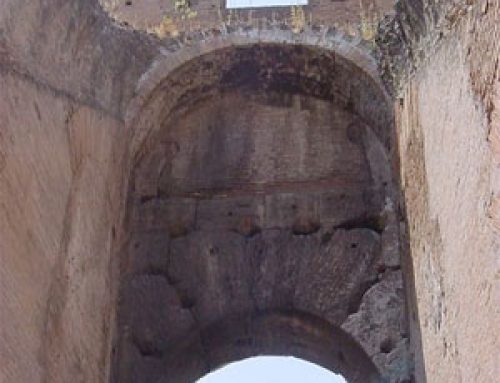
Classical Greek architecture: Parthenon, Athens
From Archaic to Classical
There is no really sharp change in the style of architecture between the Archaic and the Classical periods. One blends gradually into the other.
Archaic Greek architecture
Classical Greek history
All our ancient Greece articles
For no particular reason, we actually have more archaic temples that survive than we do classical temples. The most famous surviving classical temple is the Parthenon in Athens, which mixes the Doric and the new Ionic styles.
The Parthenon in Athens

The Parthenon painted in colors (from Midwest Studios)
The Athenians built the Parthenon, a temple to Athena Parthenos, or Athena the Pure, in the 440s BC, using money from the Delian League’s treasury. It replaced an earlier temple that the Persians had burned.
What is the Parthenon?
Who is Athena?
Athens and democracy
Economy of Classical Greece
The Athenians wanted the Parthenon to be the best temple ever built, and so it was made entirely out of marble (even the roof-tiles!), and with eight columns across the front instead of six, and with carved and painted sculptures on the metopes.
What is a metope?
What is marble?
Classical Greek sculpture
To make the Parthenon look even more like it was reaching for the sky, the architects curved many of its lines upwards in the middle. They painted the whole building in bright colors, to make it look even more exciting.
Classical Greek painting

Theater of Dionysos, Athens
Also in the Classical period, the Greeks began to build permanent stone theaters, like the Theater of Dionysos on the side of the Acropolis in Athens (right under the Parthenon).
Greek plays: Aeschylus
Who was Dionysos?
More Greek theaters
The first Greek theaters were just people sitting on the hillside so they could see the show, but now they built stone seats into the hillside so it wouldn’t be muddy.
More about the Parthenon
More about Hellenistic architecture
Bibliography and further reading about classical Greek architecture
Make This Model Greek Temple (Usborne Cut-Out Models Series), by Iain Ashman (1998)
An Ancient Greek Temple, by John Malam, Mark Bergin (2001)
Greek Art and Archaeology (3rd Edition), by John G. Pedley (2002). A lot of good information and is pretty readable. Plus, the author is really an expert in this field.
The Archaeology of Greece: An Introduction, by William R. Biers (1996). Biers writes very clearly and has a lot of good pictures.




